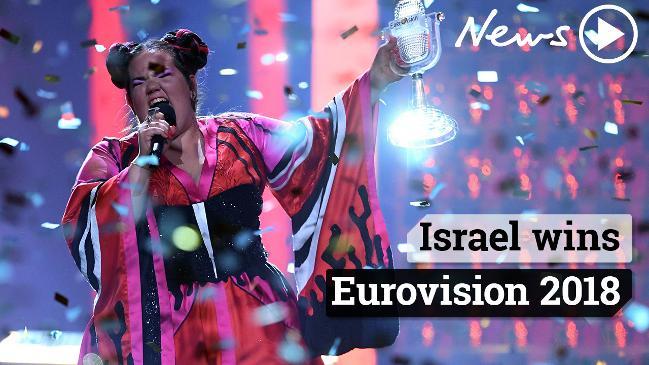Kate Miller-Heidke takes out Australian Eurovision spot after public vote
For the first time the Australian Eurovision contestant was voted on by the public following live performances with singer-songwriter Kate Miller-Heidke getting the nod.
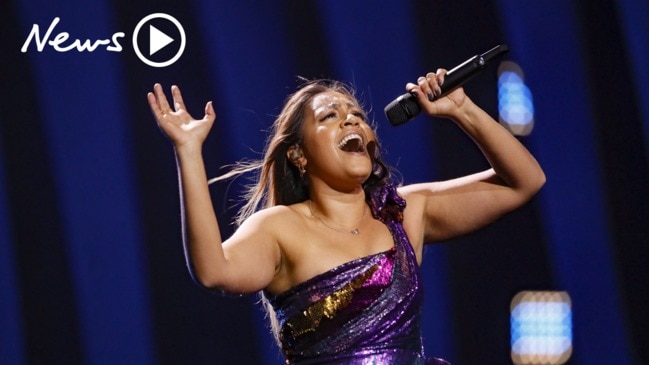
Singer-songwriter Kate Miller-Heidke has been chosen to represent Australia at this year’s Eurovision Song contest.
Ten of Australia’s most exciting performers took to the stage at a live event on the Gold Coast on Saturday night for the chance to represent the country at the annual music competition.
It was the first time the Australian Eurovision contestant has been decided by the Australian public.
Kate Miller-Heidke beat out other Aussie artists including Mark Vincent, Courtney Act, Sheppard, Electric Fields, Leea Nanos, Alfie Arcuri, Ella Hooper, Tania Doko and Aydan who each performed an original song, with a panel of judges and the Aussie public determining who to send to this year’s host city, Tel Aviv, in May.
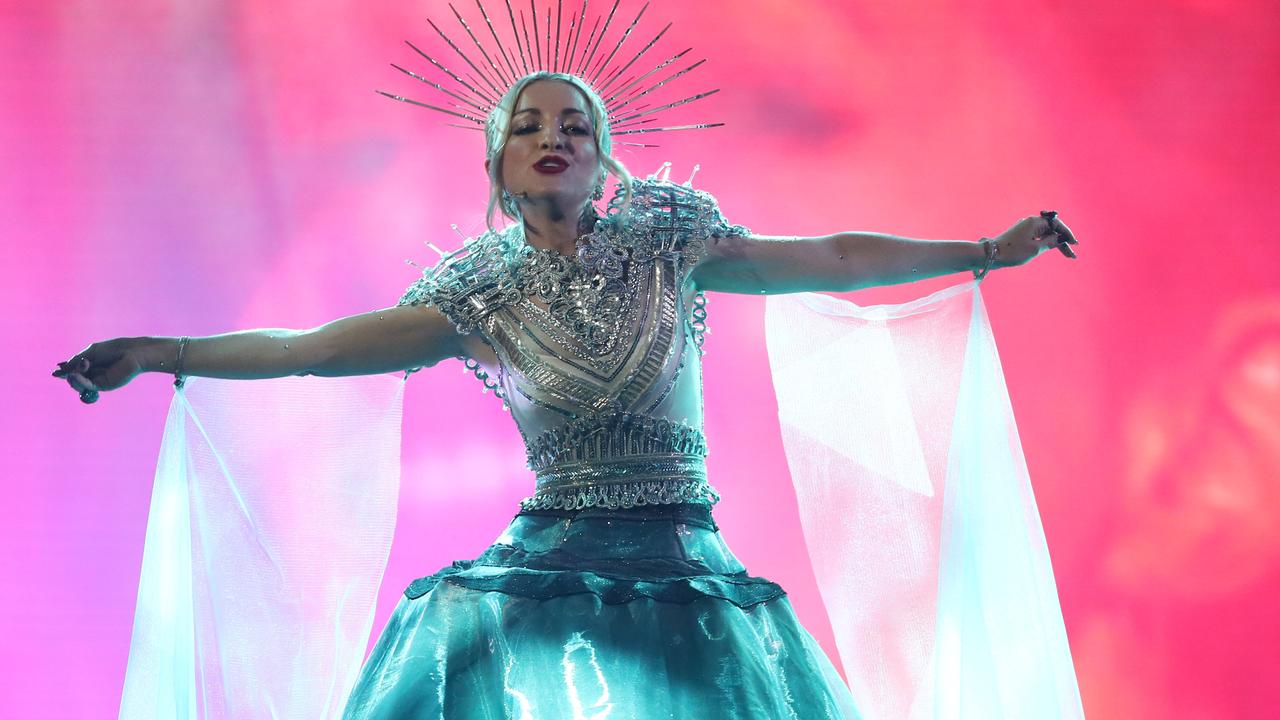

Despite the specifically Euro-centric nature of Eurovision, Australia is a competing country. It started with what was meant to be a one-off with Guy Sebastian in 2015, largely out of recognition of the song content’s massive cult following Down Under. But we’ve had a performer representing Australia at Eurovision every year since.
Dami Im, Isaiah and Jess Mauboy have each had their moment on the Eurovision stage.
An expert jury assessed the performances and then Australia weighed in by casting votes throughout the night, each accounting for 50 per cent of the contestant’s final score.
The industry jury gave the highest rating to Kate Miller-Heidke’s performance of her song Zero Gravity, putting her at 48 points.
And the Australian public’s vote pushed her over the top with a futher 87 points, which was the highest public vote for any artist. A total of 135 points was enough to ensure the 37-year-old narrowly beat electronic group Electric Fields.
In third place was Sheppard with their new single On My Way, followed by drag queen Courtney Act who came fourth in overall voting.
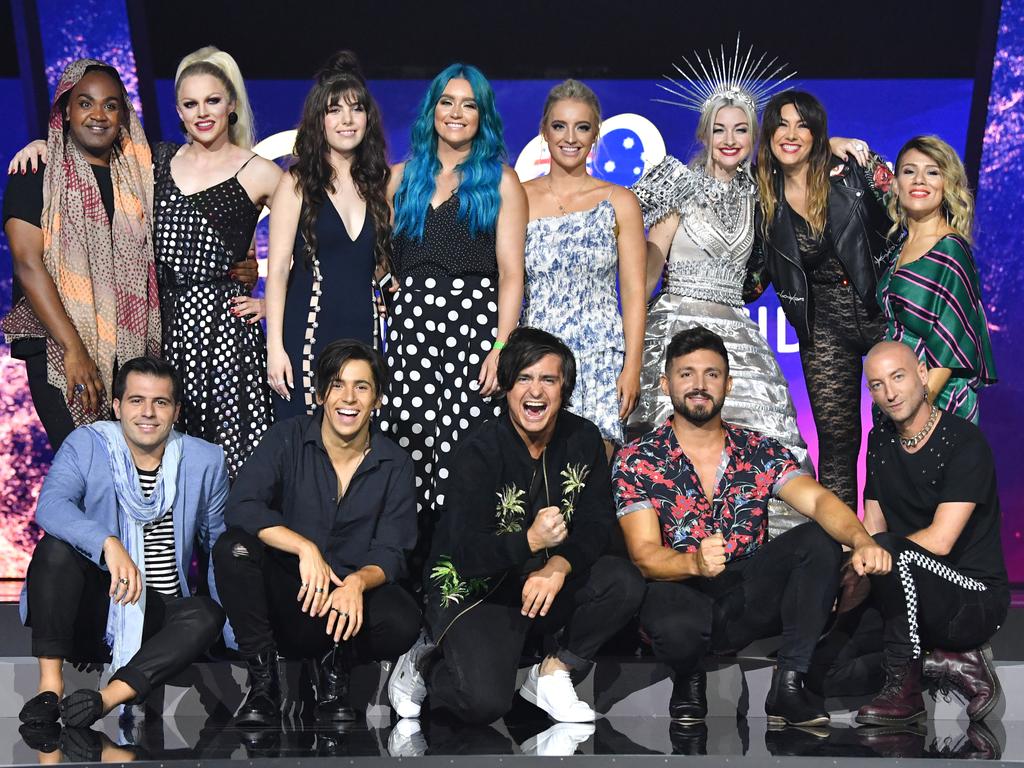
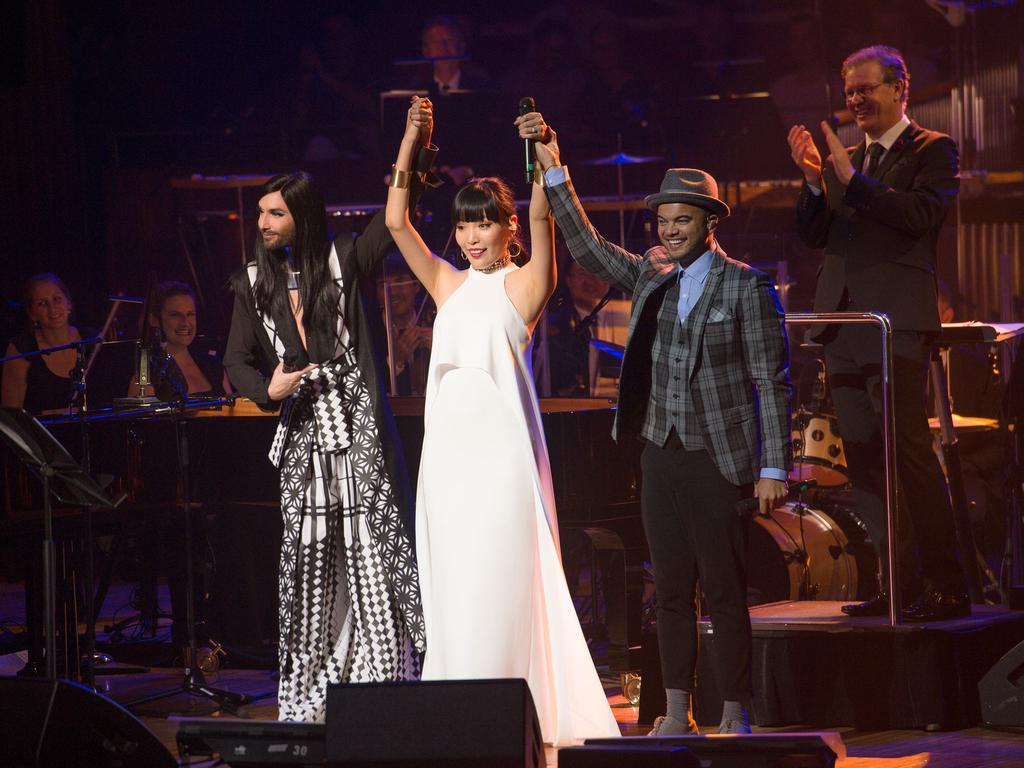
CONTROVERSY BEHIND THE CONTEST
Whoever is determined to be Australia’s Eurovision contestant will be walking into what could be one of its most controversial contests ever on May 18.
While glitz, glitter, Europop kitsch and staggering vocal gymnastics have always been at the core of Eurovision, this year has already seen the addition of major political controversy.
It’s being hosted by Tel Aviv following Israeli contestant Netta Barzilai’s win last year.
A Palestinian-led international boycott movement has called on nations, broadcasters and artists, including in Australia, to cancel their involvement with Eurovision.
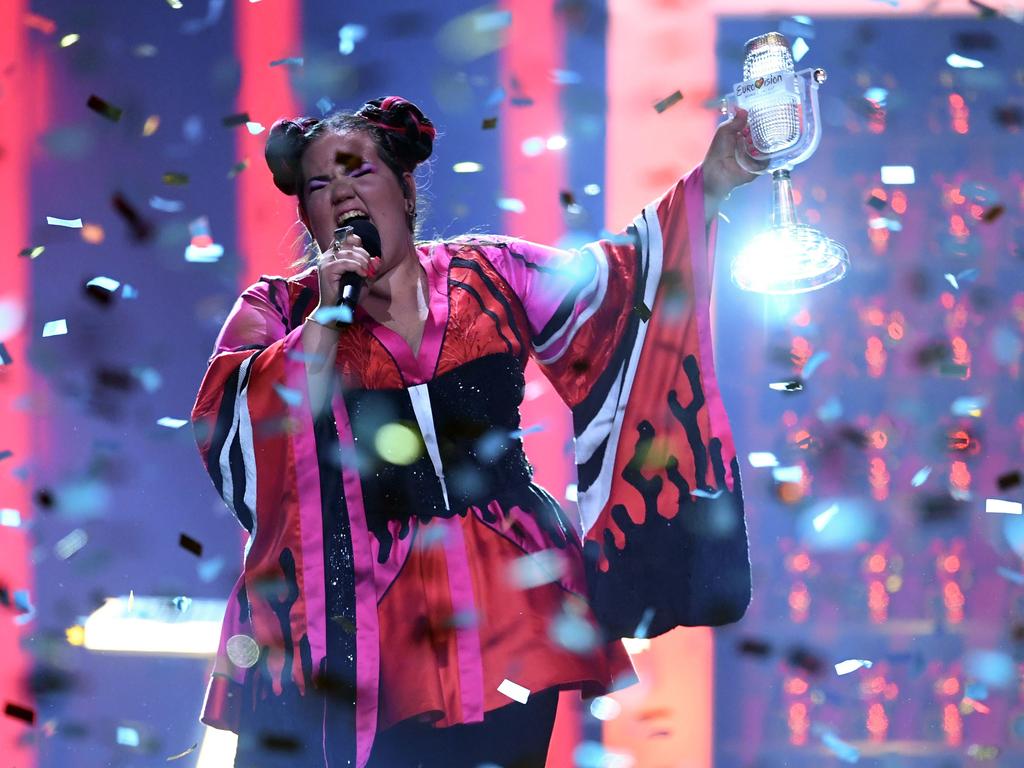
Protests led by the Boycott, Divestment and Sanctions (BDS) movement have been held outside SBS’s Sydney headquarters and petitions have called on the BBC and Irish broadcaster RTE to cancel their broadcasts of the competition.
In response to those calls, SBS has said: “SBS has been proudly broadcasting Eurovision for 35 years and we will continue to do so in 2019 because of the spirit of the event in bringing people and cultures together in a celebration of diversity and inclusion through music.”
Separately, this week, an Israeli band announced it was quitting Eurovision as its members would be forced to perform on the Jewish Sabbath.
There's a lot of ways to look at this, and anger at the EBU is understandable. But you can also see this as a group of young people who weren't willing to compromise their beliefs to realize a dream. https://t.co/ELO3INOCLx
— Amy Spiro (@AmySpiro) February 5, 2019
I’m very disappointed that you would promote such a divisive event. This gives the appearance of supporting gross systemic abuse @BDS_Australia
— Wendy Bacon (@Wendy_Bacon) February 9, 2019
Eurovision is held on a Saturday night and the compulsory rehearsal falls on the Sabbath. Organisers said there would be no exceptions, prompting the band Shalva — one of the favourite to represent Israel — to drop out of the qualifying competition.
This year has also seen some fallout from another controversial aspect of Israel’s 2018 Eurovision win.
This week it was revealed Jack White, formerly of the White Stripes, won the right to be listed as one of the songwriters of Netta Barzilai’s winning song Toy.
It followed a copyright claim by White’s label Universal Music Group that argued elements of Toy sounded a lot like the White Stripes’ 2003 rock anthem Seven Nation Army.

WHO ELSE IS COMPETING THIS YEAR?
Other nations vying for a slice of Eurovision glory are also going through the process of deciding which artist will represent them.
The 2014 winner of the British X Factor, Michael Rice, has just been announced as the representative for the UK — which, along with France, Germany, Italy and Spain, gets an automatic spot in the grand final thanks to its huge financial contribution to Eurovision.
A handful of other nations have also announced their contestants.
The most noteworthy so far is Finland, which will be represented by singer Sebastian Rejmanm and Darude — yep, that Darude, the Finnish DJ behind the 1999 global hit and New Year’s Eve playlist staple Sandstorm. The song the duo will enter in the contest is yet to be released.
